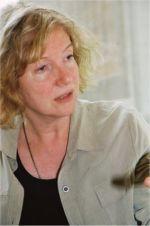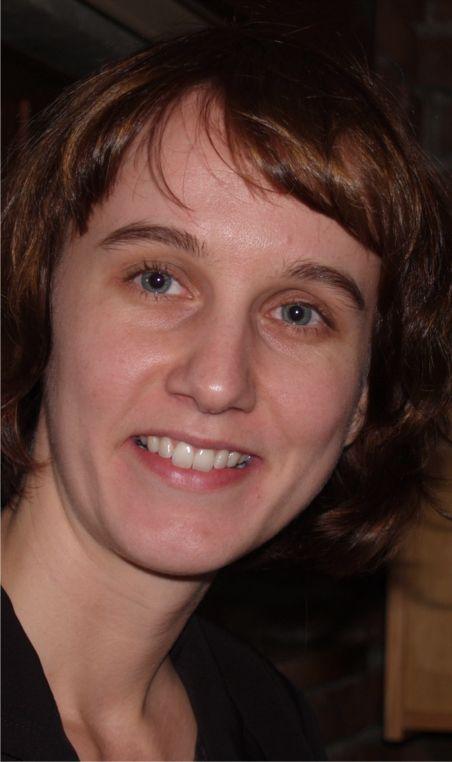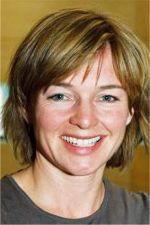The conference “Gender Power in the Nordic Countries” took place in June 2003 at the University of Oslo, in Norway, and was attended by 180 Nordic gender researchers, administrators, ngo representatives, politicians and many others. The conference started with presentations by Drude Dahlerup – a Dane, but a professor at Stockholm University; Cathrine Holst, PhD student at the University of Bergen; Annette Brochorst, lecturer at Aalborg University; and Yvonne Hirdman, professor at Stockholm University. They presented their points of view on what challenges Nordic gender research currently faces.

Drude Dahlerup believes that it is difficult to determine whether society is moving “forwards” or “backwards” in the distribution of power and privileges. This will entirely depend on how you measure power. Dahlerup called for sharper and bolder analyses of power in politics. We need to get away from the current situation in which, on the one hand we are not doing research on power structures at all, and on the other we only approach power through general theories on patriarchy, she said.
– What is the goal of work on gender equality, she asked.
– That gender will not matter, that ethnicity will not matter – or rather the celebration of diversity.
Dahlerup said that the goal of Norwegian gender research is “the good life for everyone”. And that Norwegian researchers focus on either Norway or the developing world. The Danes are more concerned with theory and theoretical debate, while Danish politics is going ‘to hell’. Swedish gender research is, on the one hand, critical of the social democratic welfare model, but on the other hand, it focuses on improving it. The links between Swedish gender research and Swedish politics are very strong, she said.
Danish university lecturer Anette Borchorst, in her contribution, was actually concerned with politics. Her description of the situation is as follows:
– All topics that touch upon sexuality were for a long time non-topics in public debate in Denmark. It was believed, in the women’s movement too, that issues about sexuality belonged to private lives of people. Now, this is the only topic on the agenda in the gender equality debate, she said.
When parental leave was recently substantially increased in Denmark none of it was earmarked for the father, in contrast to both Norway and Sweden – quite the opposite. The four weeks that had been reserved exclusively for fathers were reduced to two. And those two remaining weeks must be taken directly after the birth, while the mother is also at home. The argument is that the state does not want to dictate to young families how they should organize their private lives.
– It’s a step backwards for gender equality, said Borchorst.
She also emphasizes thinking about gender in relation to other categories of difference between people such as ethnicity, class and generation.
Swedish Yvonne Hirdmann shares this interest.
– Theories on gender power are changing constantly, but they are continually characterised by areas of light and darkness. The darkness is the invisibility of power’s true nature, especially in regard to minority groups, she says.
As an example, Hirdman used the reaction of the left and of feminists after the murder of Fadime Sahindal, a young Swedish Kurdish woman who was shot to death by her father because of her relationship to a Swedish man.
To say that this was a result of gender power or patriarchy is to transform the specific into the general, she said.
– We make the general the norm and do not want to look at the particular. This is a trend that must be reversed, Hirdman pointed out.
A room of one’s own

Catherine Holst started off by looking at her own position, not as Norwegian, Swedish or Danish, but as a young feminist gender researcher. She emphasized that there are many feminisms. There are many starting points, many views and many positions. This creates conflicts, but also challenges and opportunities. Holst identified internal power struggles within the gender research community and spoke forcefully for the acceptance of a diversity of voices and positions within this research field. It is the heterogeneity of this field that can lead to tension and change, and it is this same heterogeneity in this field that makes us call attention to and prioritize different tasks, she says.
Surveying the field of feminist research, Holst pointed out how it was constituted on, and shaped by, the experiences of the ‘68 generation. Who is “in” and who is “out” has to too great a degree been decided by this generation’s grasp of the field. But feminism must be a term for a diverse project, and our main concern as feminist researchers must be to try to meet new voices without creating new “in” and “out” groups, she said.
– The feminist project must once and for all be liberated from the experiences of one particular group.
The need for visionary goals was voiced by Holst. These ambitions must be allowed to have their source in individuals’ understanding of society and of the gender research field. A personal, “own”, space and subjective meaning must be awarded a higher status, she emphasized.
A real meeting of diverse views is needed

There is a need to develop further analyses of the extensive power structures, pointed out the conference’s concluding speaker Helene Aarseth, research fellow at the Centre for Women’s Studies and Gender Research at the University of Oslo. Aarseth called for a meeting of views on power developed within feminist gender research, and the potential nuancing and criticism of this understanding of power developed within feminist masculinities-, queer- and ethnicity studies.
Aarseth emphasized, too, the need for the gender research field to maintain contact with projects for political change. She believed it is important for these visions to be rooted in a deeper understanding of the role of the economic structures in the distribution of power between the genders, where the market and capital can be understood as effective systems of logic and organisational principles in post-industrial society.
Translated by Matthew Whiting KILDEN